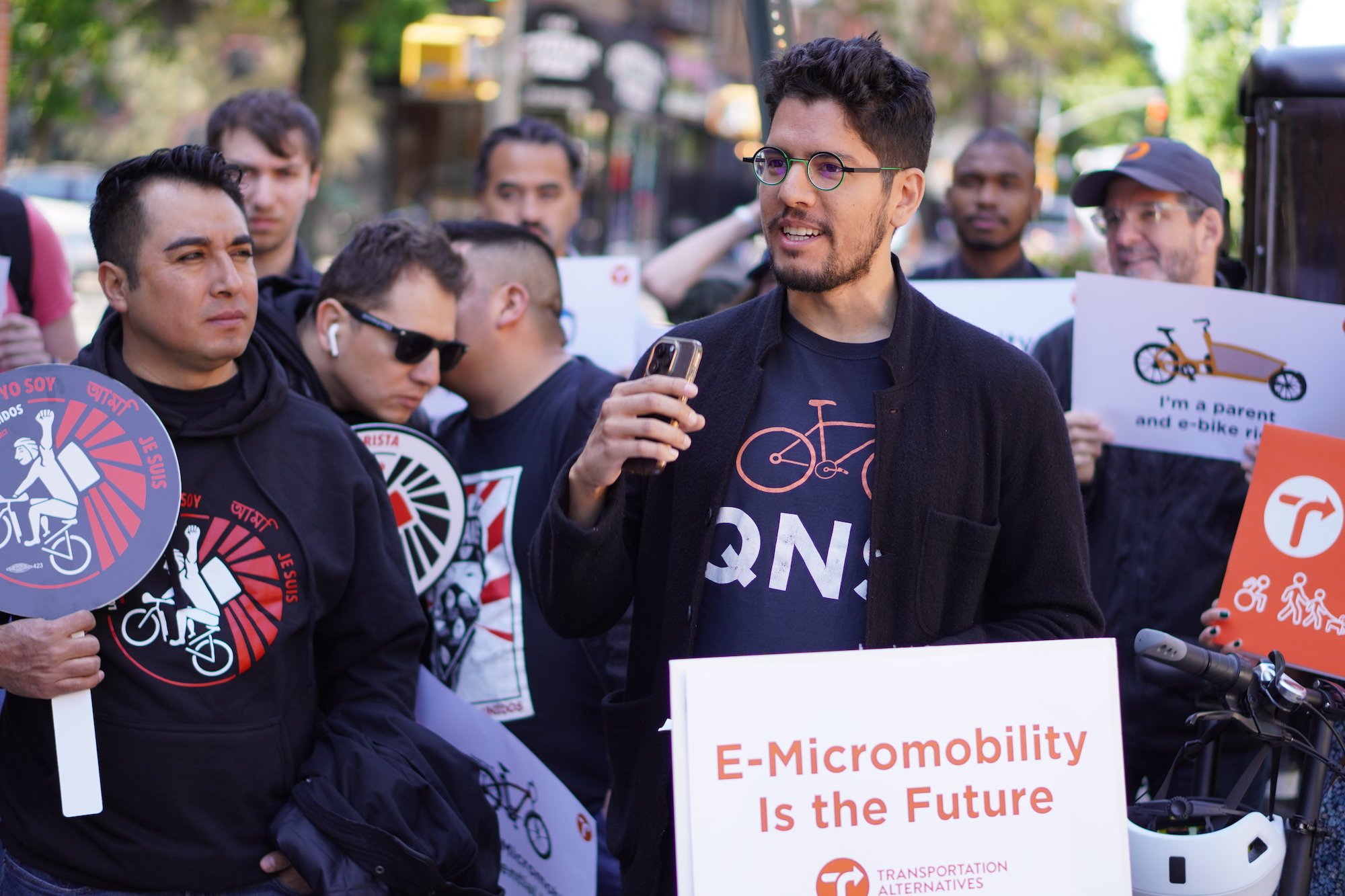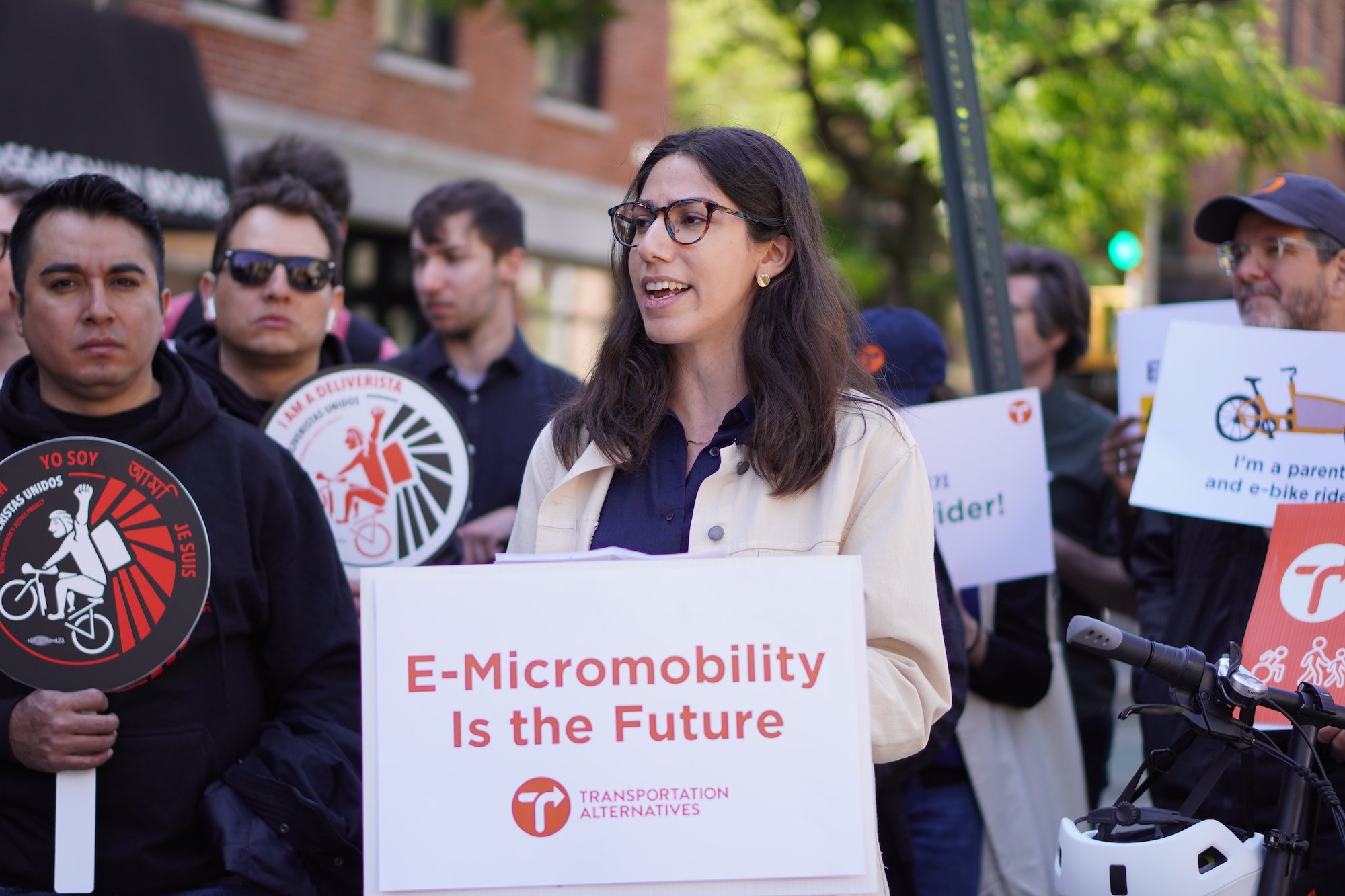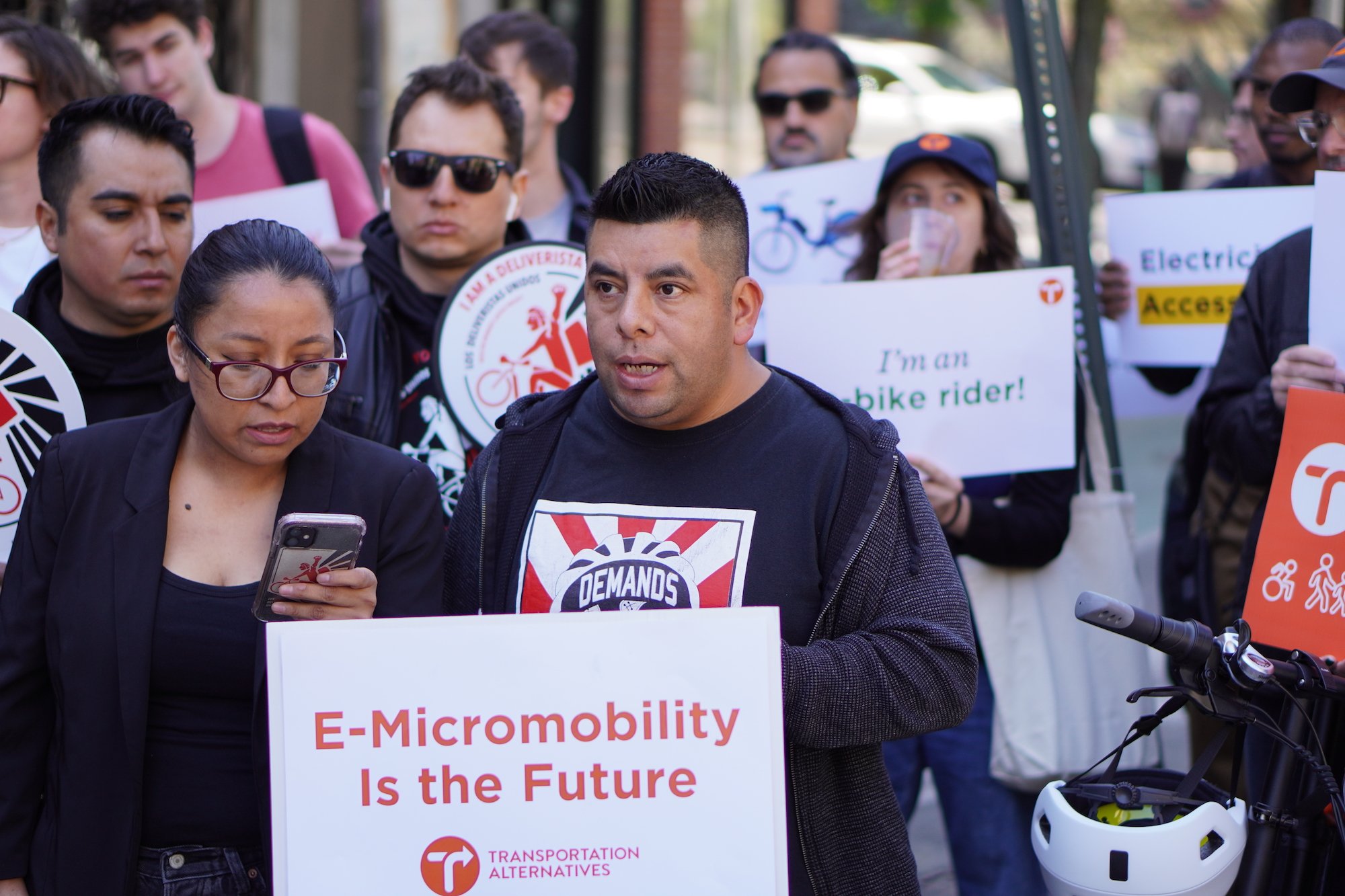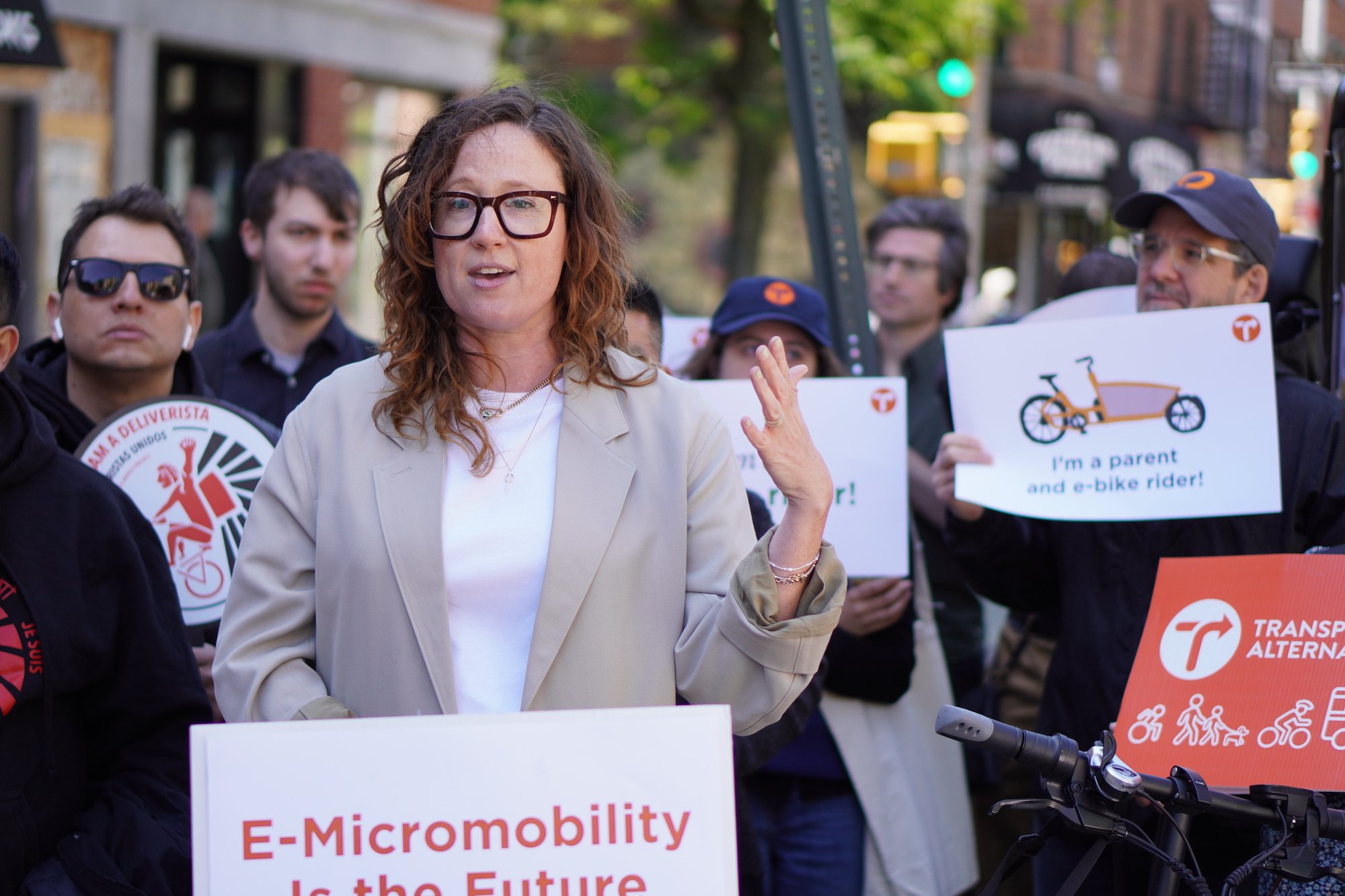Transportation Alternatives Releases New Policy Agenda for New York City to Successfully and Safely Embrace E-Micromobility
The new e-micromobility position paper details Transportation Alternatives’ recommendations for e-bike and e-scooter policy in the city.
NEW YORK, NY — Today, at a double-wide bike lane near the intersection of 19th Street and 9th Avenue, Transportation Alternatives, alongside fellow advocates, announced its new e-micromobility platform. As more New Yorkers choose e-micromobility – which includes electric bikes and scooters – this platform details how New York City leaders can support and expand these new transportation options.
“As more New Yorkers turn to e-bikes and e-scooters to get around, our leaders in New York City and Albany must make that transition safe and easy,” said Danny Harris, Executive Director of Transportation Alternatives. “With improved street design, financial incentives, and secure storage options, we can reduce car dependency and get our climate goals on track.”
The platform rests on three pillars: the need for more space and improved street design to accommodate e-micromobility; incentives to transition from cars to e-bikes and e-scooters; and rules and resources for safe use. With these changes, New York City and State can lead the country in reducing car usage and promoting sustainable transportation.
“Thanks to Transportation Alternatives for issuing this timely report. I wholeheartedly agree that the City should invest in the infrastructure needed to make New York more e-micromobility friendly and I am pleased to see the support for my legislation, A.275, to provide rebates for the purchase of e-bikes making safe riding more affordable,” said Assemblymember Robert Carroll.
"Los Deliveristas are a vital part of our city's economy – delivering food, medicine and groceries on e-bikes and other forms of e-micromobiity. Now, we are building a new e-micromobility revolution with Transportation Alternatives and many other partners who want to live and work in a city that is more sustainable and safe. This report uplifts the needs of every New Yorker, including 65,000 Deliveristas who deserve safe streets. And as we see more New Yorkers use e-bikes for work and their daily commute, and as we see more micro-mobility options continue to be expanded, we need the City to take bold, swift actions to more design more bike lanes, build Deliverista Hubs, invest in education and deliver a transition plan that makes e-bike batteries more affordable to Deliveristas and low-income New Yorkers,” said Ligia Guallpa, Worker's Justice Project/Los Deliveristas Unidos.
“E-micromobility opens up a world of better access to people living far from train stations,” said Lisa Daglian, Executive Director of the Permanent Citizens Advisory Committee to the MTA (PCAC). “As more people continue to use e-micromobility devices as first and last mile options to complete transit trips, developing a safety education campaign about following the MTA’s new guidelines— including not riding or charging in transit facilities and how to safely board and ride transit with an e-bike or e-scooter— will be key to ensuring the safety of all riders. Adding secure storage for e-bikes and e-scooters near stations is also important, so more riders can use e-micromobility to access transit and have safe and secure alternatives to bringing their devices on board. Transit and e-micromobility can go hand in hand as we move towards a more sustainable region.”
"E-micromobility is here to stay, and it’s time our infrastructure caught up to the reality," said Carl Mahaney, Director of StreetopiaUWS. "Whether it’s getting a kid to school, delivering a meal, or hauling packages, New Yorkers use e-micromobility devices everyday. We deserve infrastructure that makes those journeys safe, seamless, and stress-free. This report should be a call to action to elected officials to act more boldly and move more quickly to embrace a future that is already here."
“NYC lags behind other global cities in leveraging the potential of electric micromobility. This report provides a framework for how to redesign our public policies, programs, and spaces to support the safe and sustainable use of e-bikes and e-scooters. We look forward to working with TA and government partners to welcome more people onto two wheels,” said Melinda Hanson, co-founder of the Equitable Commute Project.
###




